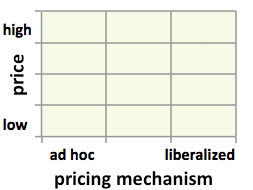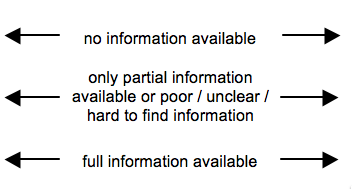Difference between revisions of "Fuel Prices Mozambique"
***** (***** | *****) m (Protected "Fuel Prices Mozambique" ([edit=sysop] (indefinite) [move=sysop] (indefinite)) [cascading]) |
***** (***** | *****) m |
||
| (3 intermediate revisions by 2 users not shown) | |||
| Line 1: | Line 1: | ||
| + | |||
{{Fuel Price Factsheet | {{Fuel Price Factsheet | ||
|Fuel Price Country=Mozambique | |Fuel Price Country=Mozambique | ||
| + | |Fuel Pricing Policies="Pricing policy: A 2006 decree provides for government control of prices of gasoline, diesel, kerosene, and LPG. Petroleum product prices are reviewed every month and maximum retail prices in cities with terminals are published. For other areas, transport costs are added. Energy and finance ministers handle fuel prices as long as price changes are smaller than 20%; if changes are larger, Council of Ministers is responsible for determining prices. Government used to adjust fuel prices every month according to a market-based formula. VAT and fuel tax are not levied on kerosene. The diesel fuel tax is halved for agriculture, fisheries, and power generation. In response to the food and fuel price shock of 2008, government introduced an urban transportation subsidy in Feb and suspended fuel-related taxes until Jul 2009. Government froze fuel prices in Apr 2009 and asked fuel importers to sell below market prices. In Mar 2010, government began raising fuel prices gradually. The prices of petroleum products other than diesel were increased by more than 70% and reached market levels by Aug 2010; diesel prices were raised by 38% to May 2010 but not raised further, incurring losses. In Feb 2010, an agreement between government and fuel importers to settle outstanding claims for 2008–09 came into effect. Government also paid compensation for below-market fuel prices in 2010 until end-May. Government in Dec 2010 paid importers fully for the losses incurred in that year by charging other petroleum products more to cross-subsidize diesel. Government increased gasoline and diesel prices by 10% in Apr 2011 and 8% in Jul 2011, but has not adjusted fuel prices since. Government had hoped to phase out fuel subsidies by the end of 2010, but the events in the Middle East and North Africa were considered extraordinary and government extended the phase-out date. In Feb–Apr and Aug–Sep 2012, world fuel prices rose above the Jul 2011 levels, again leading to losses. In Oct 2012, government completed payments to importers for fuel subsidies incurred in 2011. | ||
| + | Consequences of subsidies: Compensation paid by government, including arrears. | ||
| + | |||
| + | Social protection: Government in Mar 2011 announced a subsidy program targeting 1.8 million poor people in 11 provincial capitals that would include bus passes for workers, students, and the elderly. Urban transport vouchers were introduced in 2012. | ||
| + | |||
| + | Compensation: Urban public transport is reimbursed for the price difference between the diesel price in effect and Mt 31 (US$1.03)/liter." | ||
| + | |||
| + | (Source: Kojima, Masami. (2013, forthcoming). “Petroleum product pricing and complementary policies:Experience of 65 developing countries since 2009.” Washington DC: World Bank.) | ||
|Fuel Currency=MZN | |Fuel Currency=MZN | ||
|Fuel Price Exchange Rate=36.00 | |Fuel Price Exchange Rate=36.00 | ||
|Fuel Price Exchange Rate Date=2010/11/17 | |Fuel Price Exchange Rate Date=2010/11/17 | ||
| − | |Fuel Price | + | |Fuel Price Graph Annotation=New currency since 2006. |
| − | + | |Fuel Price Composition Annotation=No information available. | |
| − | |Fuel Price Composition Annotation= | + | |Fuel Matrix Pricing Mechanism=2 |
| − | |||
| − | No information available. | ||
| − | |Fuel Pricing | ||
| − | |||
| − | |||
|Fuel Matrix Price Level=2 | |Fuel Matrix Price Level=2 | ||
| − | |||
|Fuel Transparency Price Composition=1 | |Fuel Transparency Price Composition=1 | ||
|Fuel Transparency Pricing Mechanism=1 | |Fuel Transparency Pricing Mechanism=1 | ||
}} | }} | ||
| + | |||
| + | [[Category:Mozambique]] | ||
Latest revision as of 16:06, 15 July 2014
Part of: GIZ International Fuel Price database
Also see: Mozambique Energy Situation
Fuel Pricing Policies
| Local Currency: | MZN |
| Exchange Rate: | 36.00
|
| Last Update: |
"Pricing policy: A 2006 decree provides for government control of prices of gasoline, diesel, kerosene, and LPG. Petroleum product prices are reviewed every month and maximum retail prices in cities with terminals are published. For other areas, transport costs are added. Energy and finance ministers handle fuel prices as long as price changes are smaller than 20%; if changes are larger, Council of Ministers is responsible for determining prices. Government used to adjust fuel prices every month according to a market-based formula. VAT and fuel tax are not levied on kerosene. The diesel fuel tax is halved for agriculture, fisheries, and power generation. In response to the food and fuel price shock of 2008, government introduced an urban transportation subsidy in Feb and suspended fuel-related taxes until Jul 2009. Government froze fuel prices in Apr 2009 and asked fuel importers to sell below market prices. In Mar 2010, government began raising fuel prices gradually. The prices of petroleum products other than diesel were increased by more than 70% and reached market levels by Aug 2010; diesel prices were raised by 38% to May 2010 but not raised further, incurring losses. In Feb 2010, an agreement between government and fuel importers to settle outstanding claims for 2008–09 came into effect. Government also paid compensation for below-market fuel prices in 2010 until end-May. Government in Dec 2010 paid importers fully for the losses incurred in that year by charging other petroleum products more to cross-subsidize diesel. Government increased gasoline and diesel prices by 10% in Apr 2011 and 8% in Jul 2011, but has not adjusted fuel prices since. Government had hoped to phase out fuel subsidies by the end of 2010, but the events in the Middle East and North Africa were considered extraordinary and government extended the phase-out date. In Feb–Apr and Aug–Sep 2012, world fuel prices rose above the Jul 2011 levels, again leading to losses. In Oct 2012, government completed payments to importers for fuel subsidies incurred in 2011. Consequences of subsidies: Compensation paid by government, including arrears.
Social protection: Government in Mar 2011 announced a subsidy program targeting 1.8 million poor people in 11 provincial capitals that would include bus passes for workers, students, and the elderly. Urban transport vouchers were introduced in 2012.
Compensation: Urban public transport is reimbursed for the price difference between the diesel price in effect and Mt 31 (US$1.03)/liter."
(Source: Kojima, Masami. (2013, forthcoming). “Petroleum product pricing and complementary policies:Experience of 65 developing countries since 2009.” Washington DC: World Bank.)
Fuel Prices and Trends
| Gasoline 95 Octane | Diesel | |
|---|---|---|
| in USD* |
|
|
| in Local Currency |
|
|
* benchmark lines: green=US price; grey=price in Spain; red=price of Crude Oil
New currency since 2006.
Fuel Price Composition
Price composition.
No information available.
At a Glance
| Regulation-Price-Matrix |
| ||||
 |

|

|

| ||
Sources to the Public
Contact
Please find more information on GIZ International Fuel Price Database and http://www.giz.de/fuelprices
The following coordinate was not recognized: {{#geocode: Mozambique|google }}.



















